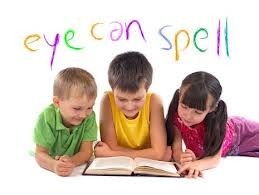How to Learn to Spell Easily and Consistently Well
 Many people say they can’t spell or are poor spellers and one of the most common complaints parents and teachers make is that a child doesn’t learn their spellings. The reason for this is mainly that most people are not taught an effective strategy for learning to remember how to spell words. Good spellers are people who have stumbled across an effective strategy for themselves and of course they are not necessarily aware of how they do it.
Many people say they can’t spell or are poor spellers and one of the most common complaints parents and teachers make is that a child doesn’t learn their spellings. The reason for this is mainly that most people are not taught an effective strategy for learning to remember how to spell words. Good spellers are people who have stumbled across an effective strategy for themselves and of course they are not necessarily aware of how they do it.
Neuro Linguistic Programming (NLP) provides the skill set to enable people to use their brains very effectively, especially for learning. One definition of NLP is ‘the study of excellence’ and so if we study excellent spellers we can teach other people to do the same thing. Contrary to popular belief there isn’t one strategy or ‘THE NLP spelling strategy’. However it is possible to identify some key processes that great spellers do well and poor spellers don’t do.
When we ask someone how to spell a word, good spellers will usually look up to their right, look at the word in their mind (their spelling database) and when they see it there, they get a good feeling down their midline – a positive yes! Ask a person who is OK at spelling to spell a word they will look up to their right, check it by sounding the letters out or sometimes breaking the word into phonemes and then get a positive yes. Ask a poor speller to spell a word and they will do a whole range of other things!
Many people say they can’t spell or are poor spellers and one of the most common complaints parents and teachers make is that a child doesn’t learn their spellings. The reason for this is mainly that most people are not taught an effective strategy for learning to remember how to spell words. Good spellers are people who have stumbled across an effective strategy for themselves and of course they are not necessarily aware of how they do it.
Neuro Linguistic Programming (NLP) provides the skill set to enable people to use their brains very effectively, especially for learning. One definition of NLP is ‘the study of excellence’ and so if we study excellent spellers we can teach other people to do the same thing. Contrary to popular belief there isn’t one strategy or ‘THE NLP spelling strategy’. However it is possible to identify some key processes that great spellers do well and poor spellers don’t do.
When we ask someone how to spell a word, good spellers will usually look up to their right, look at the word in their mind (their spelling database) and when they see it there, they get a good feeling down their midline – a positive yes! Ask a person who is OK at spelling to spell a word they will look up to their right, check it by sounding the letters out or sometimes breaking the word into phonemes and then get a positive yes.
Ask a poor speller to spell a word and they will do a whole range of other things! For example they may look up to their left and discover the word isn’t there, then they say to themselves ‘Oh no I don’t know how to spell this’, then they will look down and feel bad, then they will try to work it out phonetically and finally they get a yuck feeling and are still not sure!
R.A. Evans's Blog
- R.A. Evans's profile
- 104 followers



